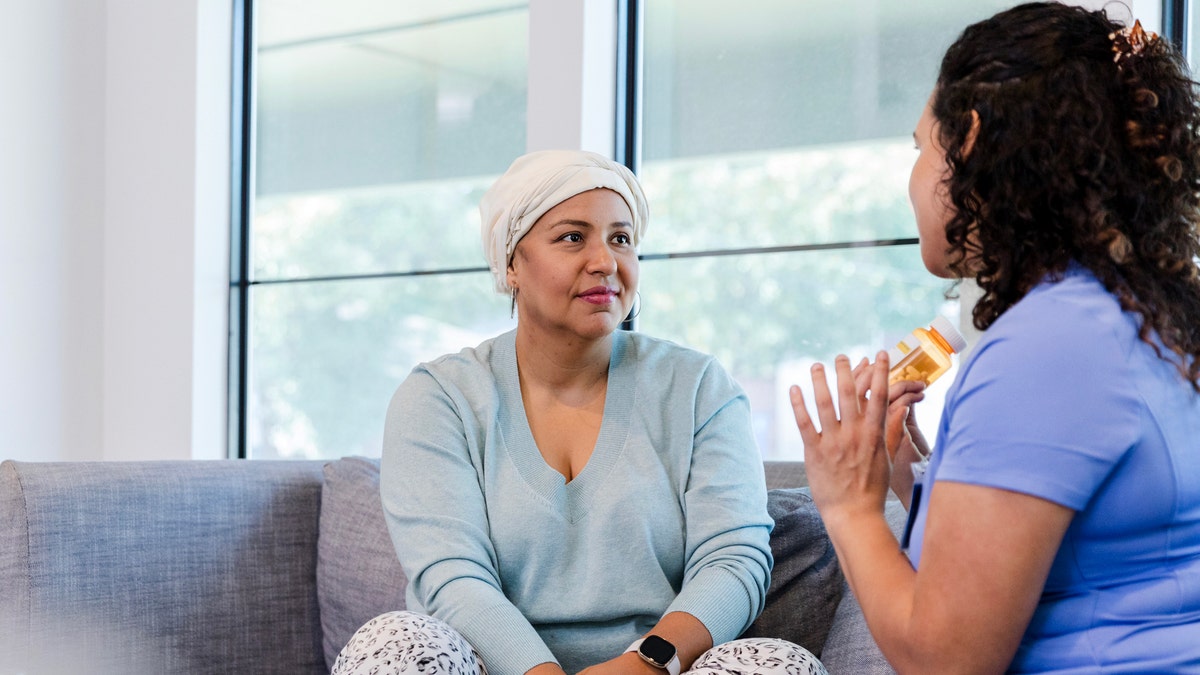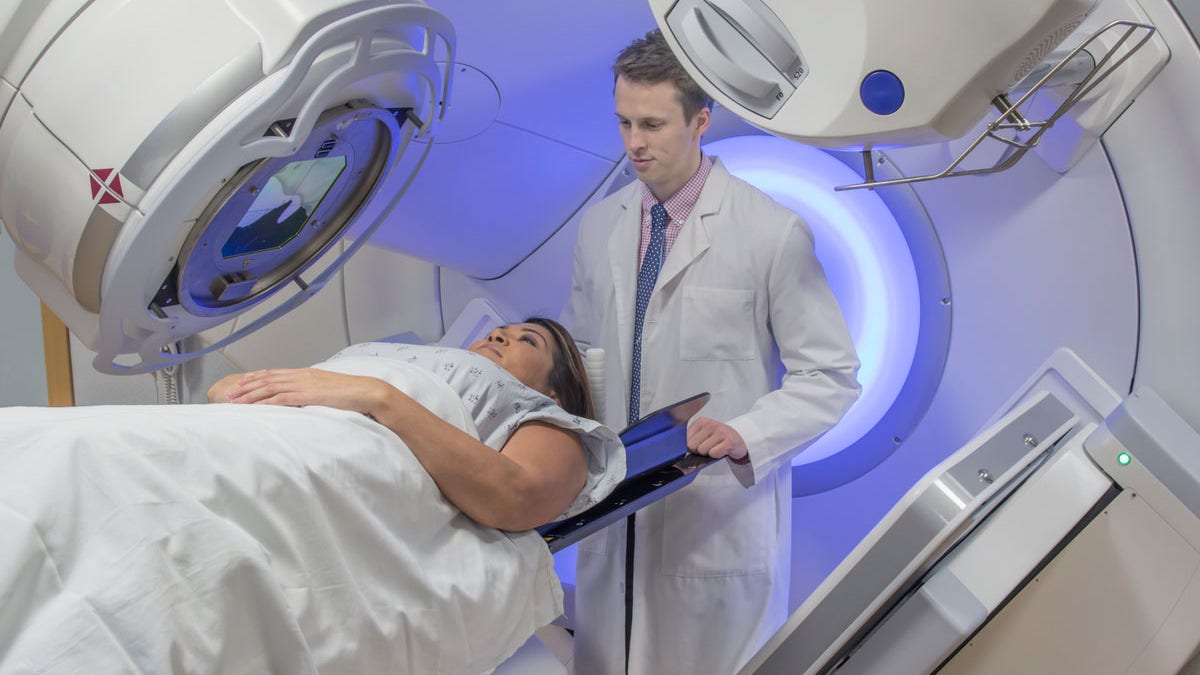NEWYou can now listen to articles!
Cancer is not typically associated with health benefits, but a new study suggests that it could reduce the risk of dementia for some patients.
A study led by the Seoul National University College of Medicine suggests that breast cancer survivors could have a slightly lower chance of developing Alzheimer’s disease compared to those who had not undergone treatment.
In the study, which was published in JAMA Network Open, data from more than 70,000 breast cancer survivors were compared to a cancer-free control group for an average of 7.3 years.
FDA APPROVES FIRST AI TOOL TO PREDICT BREAST CANCER RISK
Overall, the breast cancer survivors — particularly those who were 65 and older — showed an 8% lower risk of dementia within the five years following treatment.
Those who received radiation showed the most risk reduction, the researchers found.
A new study suggests that cancer treatment could reduce the risk of dementia for some patients. (iStock)
The study was adjusted for other factors that could have contributed to Alzheimer’s risk, including age, income levels, geographic location, body mass index, comorbidities (diabetes, hypertension, high cholesterol and chronic kidney disease) and health-related behaviors (smoking, alcohol consumption and physical activity), the study stated.
This outcome conflicts with previous concerns about breast cancer patients experiencing cognitive decline after treatment.
BILL GATES REVEALS ‘NEXT PHASE OF ALZHEIMER’S FIGHT’ AS HE SHARES DAD’S PERSONAL BATTLE
Chemotherapy has previously been linked to a condition called “chemo brain,” where patients experience cognitive decline.
“Chemo brain refers to cognitive dysfunction, including thinking and memory problems, that occur in patients with cancer during and after chemotherapy,” the researchers wrote.
RATES OF DEMENTIA ARE LOWER IN PEOPLE WHO EAT THIS SPECIFIC DIET, RESEARCH SHOWS
This is different from Alzheimer’s, however — with “chemo brain,” the cognitive impairment is described as “subtle” and doesn’t keep the patient from retrieving remote memories.
“Concerns about chemo brain and the long-term adverse effects of breast cancer treatment on cognition are common, but our findings suggest that this treatment does not directly lead to AD,” the researchers noted.

Overall, the breast cancer survivors — particularly those who were 65 and older — showed an 8% lower risk of dementia within the five years following treatment. (iStock)
In fact, they stated, some studies have shown that certain drugs given to breast cancer patients can help to reduce the formation of amyloid-beta and tau proteins in the brain, which is one of the hallmarks of Alzheimer’s.
Based on the findings, the researchers recommend that breast cancer patients take steps to reduce modifiable risk factors for Alzheimer’s, such as smoking and diabetes, along with receiving standard cancer treatment.
Study limitations
The study did have some limitations, the team acknowledged.
Information about patients’ breast cancer stage and radiation dose was not available. It is also possible that the number of Alzheimer’s diagnoses was underestimated.
Also, because the study focused on patients with “operable” breast cancer, it may not represent the risk of Alzheimer’s among elderly patients, those with “critical comorbidities” or patients with advanced-stage disease, the researchers noted.
CLICK HERE TO GET THE APP
“We could not evaluate the long-term increase in AD risk because our follow-up period was relatively short (maximum, 11 years),” they wrote.
“Additional studies with long-term observation periods are warranted to examine long-term associations between AD risk and breast cancer survival duration.”

Approximately 7.2 million Americans aged 65 and older are currently living with Alzheimer’s, according to the Alzheimer’s Association. (iStock)
Maria C. Carrillo, Ph.D., Alzheimer’s Association chief science officer and medical affairs lead in Chicago, pointed out that this topic of research has been explored in previous studies.
“There have been many published reports from observational studies of cancer survivors with decreased risk of Alzheimer’s disease, but also some that found increased risk,” Carrillo, who was not involved in this most recent study, told Digital.
CLICK HERE TO SIGN UP FOR OUR HEALTH NEWSLETTER
The expert cautions against drawing “abrupt conclusions” based on this study.
“Previous research on cancer survival and treatment and Alzheimer’s risk, much of it cited by the authors of this article, has produced mixed — even contradictory — results,” Carrollio said. “More research is needed — especially longer studies in more representative study populations.”

Those who received radiation therapy showed the most risk reduction, the researchers found. (iStock)
The most interesting aspect of this study, Carrillo said, is the finding that radiation therapy was associated with 23% Alzheimer’s risk reduction, while other cancer treatments showed no risk reduction.
This could be due to radiation’s capability to lower inflammation levels, the expert suggested.
For more Health articles, visit www.foxnews.com/health
“Lowering inflammation in the body and brain can reduce amyloid beta or slow amyloid beta production, delaying the onset of symptomatic Alzheimer’s,” she said. “More research is needed to see if this is, in fact, the case.”
Approximately 7.2 million Americans aged 65 and older are currently living with Alzheimer’s, according to the Alzheimer’s Association.
Digital reached out to the study researchers for comment.













